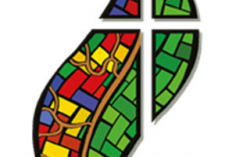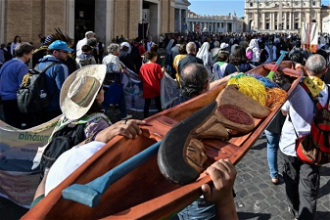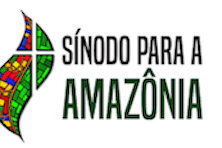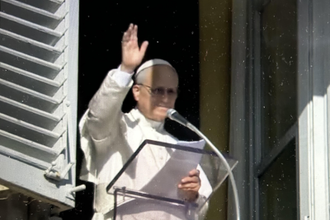Amazon Synod: The Church is people not buildings
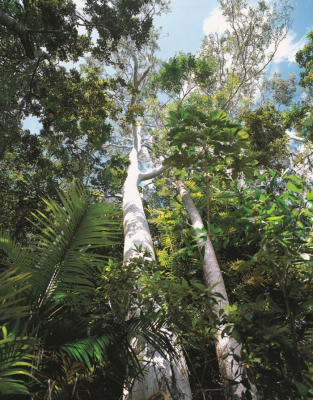
The upcoming Synod of Bishops for the Pan Amazon region (6th to 27th October 2019) is not an isolated gathering of the South American church but builds on a number of meetings organised by CELAM over a long period of time applying the principles of the Second Vatican Council (1962-65) to Latin America. Medellin focused on the church addressing contemporary socioeconomic realities and new pastoral practices to address the realities of the people who make up the church. The Puebla Conference in 1979 reflected a more conservative position though the conference still stressed a commitment to a preferential option for the poor.
The fifth conference held in 2007 at the Basilica of Aparecida Sao Paulo, Brazil, reaffirmed the positions taken at Medellin, Puebla and Santo Domingo in line with Vatican II, declaring a preferential option for the poor, and support for the Communidade de Base movement within the South American church. Calling for ongoing conversion both within the church and society, the conference, as a subsidiary branch of the church, addressed the social realities of justice and human rights violations, migrant issues, globalisation, the defence of life, the institution of marriage and the role of women. In addition, the cultural expressions of native and African Americans were given value. Aparecida marks a point in church history where the subsidiarity envisaged in the Council replaced the centralist views of the Roman curia. The link between the South American Church and Rome was made clear in a phrase by Pope Benedict X namely 'Cum Petro et sub Petro'.
The Church in Europe, especially in England, would do well to remember how important Patristics were to people such as John Henry Cardinal Newman. After years of prosperity and empire we do well to remember that cultural diversity is not to be despised but respected. Because someone comes from a different culture does not mean they cannot appreciate or hold the same truths or worship the same God. Two instruments within Brazil which helped implement the decisions of the Second Vatican Council (itself built on the bedrock of Patristic studies) were the Communidade de Base movement and the Campagna da Fraternidade. In defining Basic Ecclesial Communities (hereafter BECs) the Aparecida conference described them as -communities , a gathering of people who live in the same region, have a unifying mindset and have the same faith. They are ecclesial because they are united with the Church. They are basic because they are made up of people from the lower classes as opposed to those who have possessions'.
Aparacida made the point that 'grassroots ecclesial communities will be careful not to alter the precious treasure of tradition and the magisterium of the Church'. The BECs are schools that help form Christians committed to their faith, disciples, and missionaries of the Lord, as witnesses of a generous surrender, even with the shedding of the blood of many of their members. They embrace the experience of the early communities, as described in the Acts of the Apostles (Acts 2: 42-47) (DAp 178). The great contribution of the BECS, which emerged in the 1960s, was the rediscovery of the person of Jesus Christ from the communal reading of the Word of God. This rediscovery was not the effect of theological inquiry, but simply because the Gospel found its own place, that place where it must be read and where it becomes the Word for Christians, the ecclesial community. This place is the world of the simple people, the poor and the excluded.
Another fruitful instrument established by the National Confederation of Bishop of Brazil has been the Campagna da Fraternidade. Best described as an annual Lenten campaign of mass readings, music, literature and events, the Campagna da Fraternidade seeks to inspire and unite the faithful in relation to a specific problem that faces the 'povo de Deus' with a focus on exploring Christian solutions. Every five years it is promoted ecumenically with other denominations. An annual theme is chosen to define the concrete reality to be addressed, with a motto explaining how the problem will be addressed. In 1964 and 1965 the themes were 'Renewing the Church 'and 'Renewing the parish' with the mottos: 'Remember you are also a Church' and 'Make your parish a community of faith, worship and love.' From 1966-1972 this theme continued. Moving on from renewal to social reality and justice the themes from 1973-1984 included 'Brotherhood and Freedom' with the motto 'Selfishness enslaves, Love sets you free.' 1979 'For a world more human' with the motto 'Preserve what belongs to everyone.' 1982 'Education and Fraternity' with the motto 'The truth will set you free.' Since 1985 focus has been on themes such as 'Fraternidade and Earth' with the motto 'God's Land, Land for the Community,' 1990 'Fraternidade and the Woman: with the motto 'Woman and Man: Images of God'; 2002 'Brotherhood and the indigenous people' with the motto 'For a land without evil;' 2004 'Fraternidade and water: with the motto 'Water, source of life'. 2007' 'Brotherhood and the Amazon' with the motto 'Life and Mission on the ground'; 2011 Brotherhood and life on the planet with the motto 'Creation groans giving birth'; 2014 'Brotherhood and Human Trafficking' with the motto 'Christ leads us to Freedom'. 2016 Our Common Home Our responsibility: with the motto 'I want to see right bubble up like a fountain flowing into justice which will not run dry'. 2017 Fraternity Brazilian Blooms and Life Defence Cultivate and keep the creation. 2018 'Fraternidade and overcoming violence' with the motto 'You are all brothers'.
It will come as no surprise that the themes of the Synod are in line with those of the Campagna da Fraternidade over the past 50 years in line with the Second Vatican Council. Central to both Synod, Council, Campagna and Gospels is the cry of the earth and the marginalised. The protection of life, especially when it is threatened, characterises the Christian journey filled with hope. These themes all form part of the Instrumentum Laboris with its focus on the onward journey of the peoples of the Amazons, who make up the church in that part of the world. The history of the Amazons is especially associated with slavery and colonialism. For this reason alone, the undiscovered tribes represent a prophetic church with challenges and hopes that more complex societies such as our own can help or hinder, respect or assault.
If we, as Christians, genuinely see every day as a gift from God, we need to look with fresh eyes not just at creation (e.g. don't forget to smell the roses) but also look at new ministries, the role of women within the actual Church, and at how the life of Christ is seen in community living where the sacraments are alive and visible and not ritualised or turned into buildings having more power than people. The Instrumentum Laboris covers all these themes in a way that calls for renewal not only in the Amazon but across cultures within the rest of the Church. As such it expresses the principles of Catholic Social Teaching, which Cafod defines as 'dignity, solidarity, the common good, the option for the poor, peace, care for creation and the dignity of work and participation'.
Brazilian society is currently awash with corruption, fake news, false values and promises. President Bolsonaro has stated that he will ignore the Paris Agreement and wants a paved highway cutting through the Amazon. About 13 per cent of Brazil's territory is recognised indigenous lands, most of them in the Amazon. These lands provide a major barrier to protect the forest, and only 2 per cent of rainforest deforestation has occurred inside indigenous territory. Cattle ranching accounts for roughly 70 percent of deforestation in the Amazon. In spite of these facts President Bolsonaro wants to abolish FUNAI, IBAMA and ICMBio who protect the indigenous and ensure that there is no illegal mining, deforestation and logging. He wants indigenous territories opened to mining. He wants to relax environmental law, enforcement and licensing. He wants international NGOs such as Greenpeace and WWF banned from the country, and has a strong alliance with the beef lobby.
The South American church will look to the Synod to re-energise itself. In so doing it will remember the lives and example of former religious leaders such as St Oscar Romero, Dom Helder Camara, Dom Paulo Arns and the many defenders of the Amazon forest. The themes that the summit will consider might be the very ones we as members of the universal Church need to re-examine here in England - namely how as Christian communities we make decisions, what weight do we give to truth not 'alternative facts', community not egoism, service not power, internal not external growth, dialogue and debate not populist indoctrination, inclusion not exclusion of the marginalised, and, as Vatican II taught us, to see the Church as people not buildings.
The writers - now based in Clifton Diocese - have lived and worked in Brazil.



